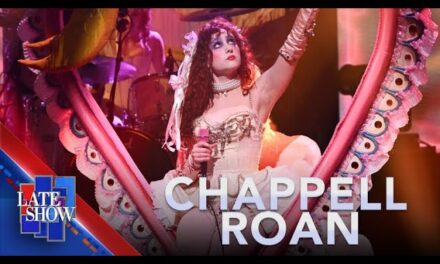Last week, during an episode of “Friday Night With Jonathan Ross,” Stephen Fry opened up about his experience working on the popular chat show, “QI.” While watching the show with his wife and child, Fry’s wife remarked on how he seemed to be thoroughly enjoying himself on the program. This prompted their daughter to question how her mother knew the name of the man who read the Harry Potter books.
Fry took this as an opportunity to share the intriguing story of how he came to be involved in the audiobook version of J.K. Rowling‘s beloved series. He explained that his agent approached him to do a children’s book audio recording, assuming it would only take half a day since children’s books tend to be short. However, Fry was in for quite a surprise when he discovered that the first book, “Harry Potter and the Philosopher’s Stone,” was a whopping 85,000 words – the length of an average adult novel.
Despite the initial shock, Fry found the story to be delightful and proceeded to work on the audiobook. Little did he know, Rowling’s rise as a successful author was just beginning. With each subsequent book release, the Harry Potter series gained even more popularity, becoming a staple at dinner parties and a topic of conversation alongside other literary works and real estate prices in the affluent northwest three postal district.
As the series took off, Rowling embarked on a tour of the United States, akin to The Beatles’ famous American journey. Fry remarked on the enthusiasm of American fans, who lined up outside bookstores dressed as characters from the books. However, what he found slightly creepy about the American experience was the behavior of Rowling’s publishing agent and staff.
Fry described a peculiar scenario where Rowling would diligently sign countless books, chatting with fans along the way. Behind her, her publishing agent and other helpers would facilitate the process, handing her numerous buff-colored envelopes. But each time Rowling tried to reach for one, someone would snatch it away before she could see its contents. Intrigued, Fry asked what these envelopes were for.
The helpers explained that each envelope contained someone’s idea for a Harry Potter story. These fans had written their own plots and dialogue, fearing that one day Rowling might inadvertently use a similar phrase or storyline and face a lawsuit. By never physically touching the envelopes, Rowling could protect herself legally. Fry was astounded by this level of caution and manipulation, stating that it took Rowling’s role as a writer to a whole new level.
This revelation provides a fascinating insight into the world of publishing and the precautions taken by renowned authors like J.K. Rowling to avoid potential legal entanglements. It is a testament to the immense success and cultural impact of the Harry Potter series.




